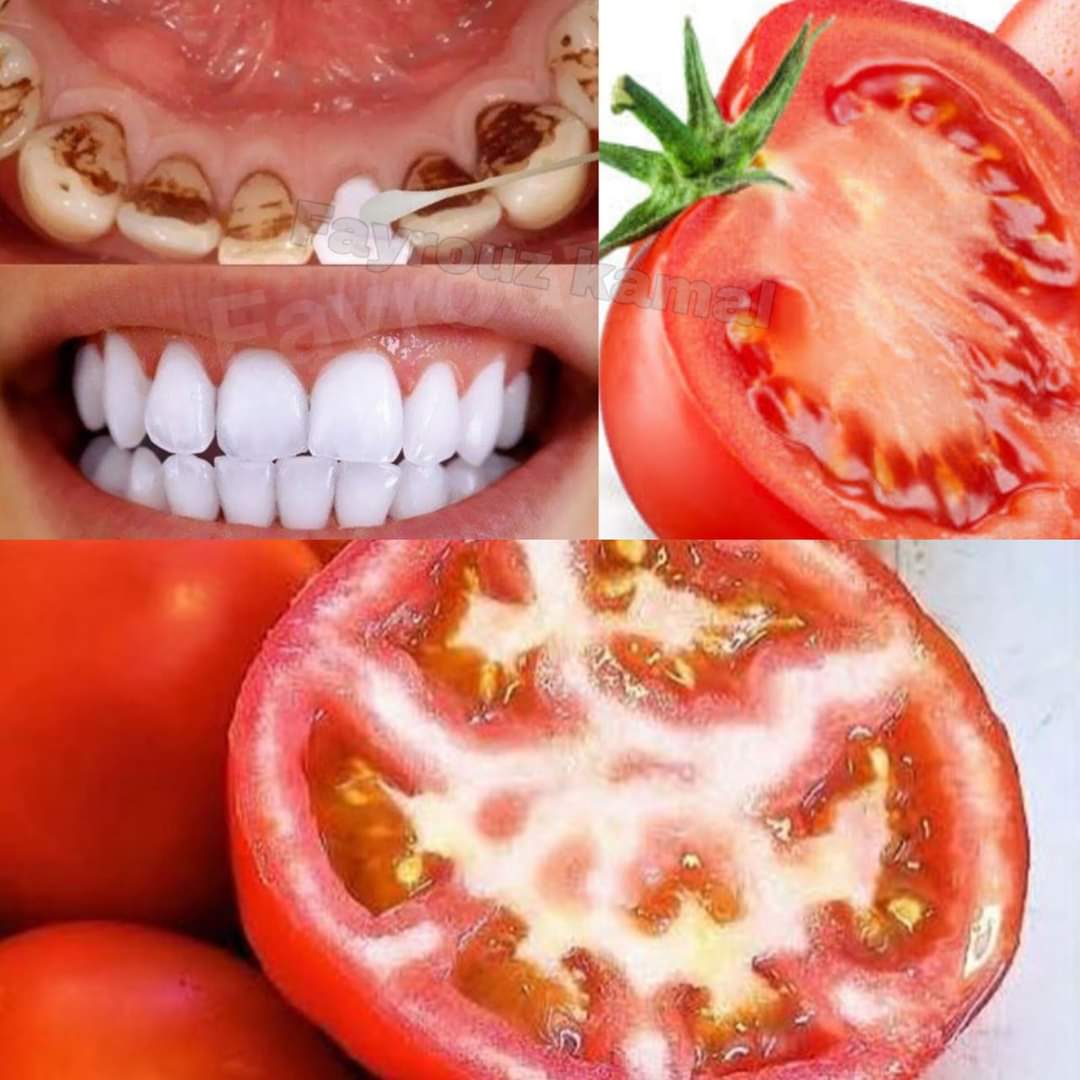ADVERTISEMENT
How to Use Tomato Teeth Whitening
If you want to incorporate tomatoes into your teeth-whitening routine, here’s a simple step-by-step guide on how to use them effectively:
1. Choose Fresh, Ripe Tomatoes:
- Use fresh, ripe tomatoes for the best results. Overripe or under-ripe tomatoes may not have the same level of acidity or nutrients necessary for effective teeth whitening.
2. Mash the Tomato:
- Begin by mashing a small amount of fresh tomato (about half a tomato should be enough). Use a fork or blender to crush it into a paste-like consistency. The pulp and juice of the tomato are the key ingredients for this whitening process.
3. Apply to Teeth:
- Using your finger or a soft toothbrush, apply the mashed tomato directly to the surface of your teeth. Make sure to coat your teeth evenly with the tomato paste.
4. Leave for a Few Minutes:
- Let the tomato paste sit on your teeth for 2-3 minutes. This gives the malic acid and other nutrients in the tomato time to work their magic by gently removing surface stains and polishing your teeth.
5. Rinse and Brush:
- After a few minutes, rinse your mouth thoroughly with water. Follow up by brushing your teeth with your regular toothpaste to remove any remaining tomato residue and to ensure your mouth feels fresh.
6. Repeat 2-3 Times a Week:
- For best results, repeat this process 2-3 times a week. Using tomatoes too frequently could potentially irritate the gums due to the acidity, so it’s important not to overdo it.
Tips for Maximizing Tomato Teeth Whitening:
- Combine with Baking Soda:
- For an extra whitening boost, you can mix a small amount of baking soda with the tomato paste. The slightly abrasive nature of baking soda can help scrub away deeper stains, enhancing the whitening effect.
- Hydrate Your Teeth After Use:
- After using tomatoes on your teeth, drink plenty of water. Tomatoes’ natural acidity can sometimes leave your teeth feeling slightly sensitive, and hydrating your mouth will help neutralize the pH and prevent any potential discomfort.
- Monitor Your Sensitivity:
- While tomatoes are generally safe for most people, those with particularly sensitive teeth or gums may want to test the treatment first on a small area. If you experience discomfort, discontinue use.
- Practice Good Oral Hygiene:
- While tomato teeth whitening can help with surface stains, it’s still important to maintain good oral hygiene habits, including regular brushing, flossing, and dental checkups. A balanced diet with plenty of water will also help maintain a healthy smile.
Potential Drawbacks to Consider
While tomato teeth whitening can be effective for brightening your smile, there are some things to keep in mind:
- Acidity:
- Tomatoes are naturally acidic, and prolonged exposure to acidic foods can sometimes weaken tooth enamel if used excessively. It’s important to use this method in moderation and avoid leaving the tomato paste on your teeth for too long.
- Not a Dramatic Whiteness Solution:
- Tomato teeth whitening is more effective for subtle stain removal rather than dramatic whitening results. If you’re looking for an intense whitening effect, this might not be the best option. However, it’s great for those who want a gentle, natural solution.
Conclusion
Tomato teeth whitening is a unique and natural way to brighten your smile without resorting to harsh chemicals or expensive treatments. With the power of malic acid and the rich nutrients in tomatoes, you can gently lift surface stains, maintain good oral health, and achieve a naturally radiant smile. As with any natural remedy, it’s important to use this method in moderation and as part of an overall healthy dental care routine.
So, if you’re looking for an affordable and gentle way to boost your smile, give tomato teeth whitening a try—you might just find that the best smile solution is growing in your garden or your kitchen!
ADVERTISEMENT
